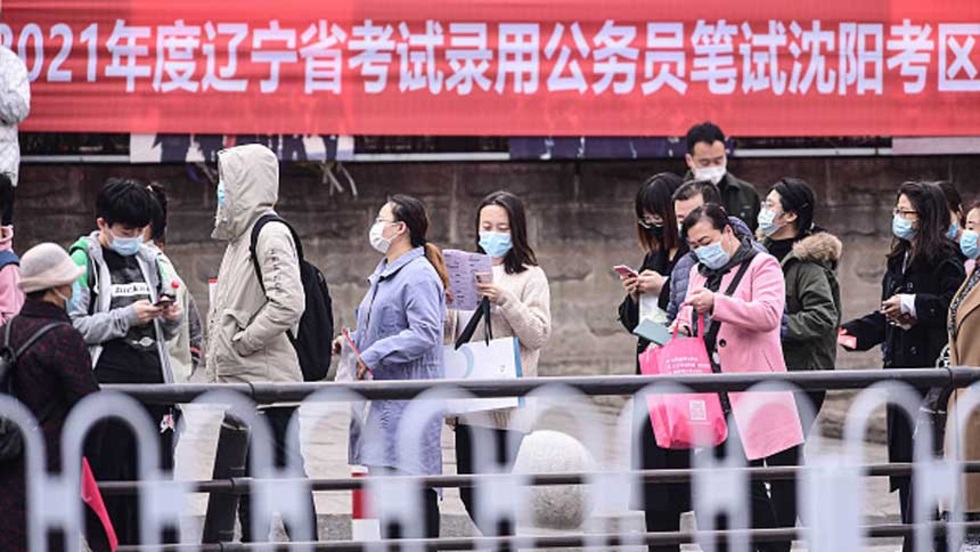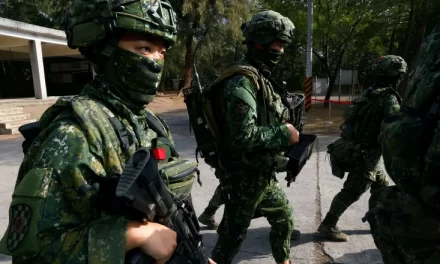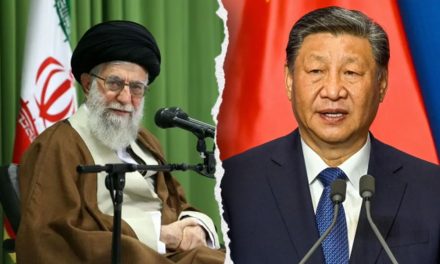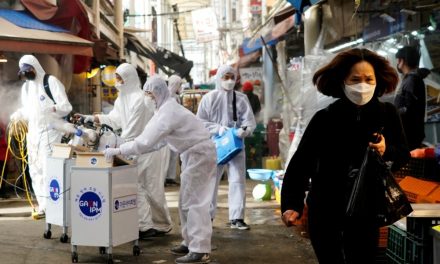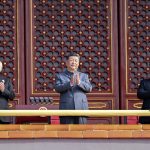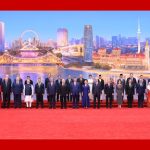By Yao Guofu
On December 31, 2024, the Voice of America’s “China’s Economy” column published an article titled “Rumors Confirmed: Bloomberg Reports Quiet Salary Increase for Chinese Civil Servants” . The article indicated that the U.S. financial-media outlet Bloomberg had published a report on December 31 that provided significant evidence of salary increases for civil servants in China. The Bloomberg report cited internal sources within the Chinese Communist Party (CCP) who stated that decision-makers, in order to boost morale and promote consumption, have decided to give civil servants a “substantial” salary increase nationwide. The base salary of government civil servants was increased by at least 500 yuan per month, retroactive to July, 2024.
Under Xi Jinping’s misguided economic policies, which violate market principles, China is facing a real-estate collapse, a sluggish stock market, a weakened currency, widespread factory and store closures, and an economic depression marked by high unemployment, wage cuts, and stagflation. In such a context, a responsible government concerned with the public’s suffering should provide living subsidies to the lowest-income groups, enabling them to afford goods they could once buy but now dare not consume, thus ensuring that their standard of living does not decline. This would also help stimulate consumption and prevent a further economic decline. However, the CCP has chosen to raise salaries for civil servants, who are not lacking in funds, while excluding the poorest and most vulnerable groups that urgently need assistance. This decision not only does nothing to help the economy but also deepens wealth inequality and social injustice, which will undoubtedly worsen social tensions.
While the CCP increases salaries for the military, police, and officials year after year, farmers who have paid taxes all their lives receive only a meager pension upon retirement of around 100 yuan per month. This results in elderly farmers struggling to make ends meet, with those with children who will not help, or without children entirely, being left to fend for themselves in tragic conditions.
The CCP’s decision to increase civil-servant salaries, rather than helping the poor, is another example of its opposition to the lower classes. It reveals the CCP’s evil nature, using civil servants as tools to maintain power. This belief is driven by several factors:
- The nature of the Party: The CCP is a group founded on Marxism-Leninism, whose philosophical basis—materialism and atheism—denies human spirituality and goodness. The CCP regards humans merely as thinking, speaking, and laboring animals. This ideology leads the CCP to be a cold, unfeeling entity that does not view people as people. Compared to normal political parties, it is highly abnormal, a “political monster” to use a phrase of Ronald Reagan).
- The origin of its power: The CCP’s power did not come from divine right or elections but from armed revolution. A small group of political opportunists used promises of official titles and other bait to manipulate a group of thugs, criminals, and ill-informed peasants, eventually overthrowing the Nationalist government and seizing power. This was not in line with the interests or desires of the morally upstanding majority.
- Its basis for maintaining power: The CCP claims that its power base is the broad working class, and that 99% of the population supports it. However, in reality, its power is sustained by vested interests—corrupt officials and business people who have benefited from CCP rule through corruption and collusion.
These three things show that the CCP will never consider the well-being of the lower classes. The interests of the CCP’s bureaucratic system and the struggles of billions of hardworking people are inherently at odds. The CCP needs to survive, grow, and live luxuriously, while the people must remain poor, hungry, and suffer.
From 1927 to 1935, the CCP organized armed uprisings in Jiangxi province to overthrow the Nationalist government. The CCP resorted to banditry to solve food shortages, kidnapping wealthy peasants and forcing them to provide money and food. This led to resistance from the people and military suppression by the government, forcing the CCP to flee to Shaanxi. But even there, they exploited the people, forcing peasants to pay them high rents. During that time, there were stories of farmers, starving and desperate, mocking the leader, Mao Zedong, saying, “Why didn’t lightning strike Mao? It would have been one less living hell.”
In the early years of the CCP’s rule (1949-1958), Mao’s policies abolished private property, confiscating land, factories, and businesses, all of which were “nationalized.” (In practice, they became Party-owned). During the Great Leap Forward, the government confiscated the food, pots, pans, and tools of farmers, forcing them into collective kitchens. The result was widespread famine, with millions of people eating wild vegetables, roots, bark, and even human flesh. The militia blocked roads to prevent people from fleeing to survive. Ultimately, the Great Famine led to the deaths of 30 to 40 million people. To this day, the CCP has not issued an official apology for this tragedy.
Mao, a person responsible for such atrocities, is not only revered by Xi Jinping but also continues to be idolized elsewhere as a political role model. Since Xi took power, there has been an increasing number of “disappeared” people every year. And public opinion generally believes that illegal organ harvesting is rampant in China. Although exact numbers are unknown, there are indications that the underground organ trade may be extensive, possibly victimizing large numbers of Falun Gong practitioners and other marginalized groups. The case of Gao Zhanshi, former deputy chairman of the Chinese Writers’ Association, who reportedly benefited from numerous organ transplants before his death in 2022, also draws attention to this grim reality.
In the context of stagflation and widespread suffering, the CCP’s decision to raise salaries for civil servants—while ignoring the dire situation of millions of poor citizens—further exposes the falsehoods in CCP rhetoric:
- The CCP does not “serve the people.” The CCP claims that its founding principle is to serve the people, but in reality, it is solely focused on its own interests and the privileges of its ruling elite. The bureaucratic rulers ride roughshod over the people, enjoying long life and luxury at the expense of ordinary citizens.
- There is no “equality between officials and the people.” The CCP repeatedly claims to build an egalitarian society where officials are servants of the people, yet it continuously creates inequalities at every level.
- “Respect for Confucian and Mencian traditions” is a falsehood: The CCP claims to inherit and promote China’s outstanding traditional culture, even building temples to Confucius and establishing Confucius Institutes overseas. However, their actions are the complete opposite of the Confucian principles of benevolent rule and putting the people first.
Together, these three falsehoods expose the CCP’s evil nature.
The decision to raise salaries for civil servants, who do not need more money, is part of a hidden political scheme. The CCP’s leadership knows that the core legitimacy of its rule—its ability to develop the economy and improve people’s lives—is rapidly eroding. The people are becoming disillusioned and are likely at some point to rise up against the government. The only way the CCP can delay its downfall is by buying the loyalty of civil servants, who are its main power base. By increasing their salaries, the CCP hopes to secure their support as a “watchdog” to suppress any popular resistance.
The CCP’s attempt to “boost morale and promote consumption” in order to revive the economy and prolong its own survival is bound to fail. First, civil servants are the least in need of money, and most of their salary increases will likely be saved in banks rather than spent. And even if all of the money spent on salary increases were used to boost consumption, it would not be enough to revive China’s struggling economy. Second, in some economically backward regions, civil servants are already not receiving full pay, and the salary increases may never even reach them. As the economy continues to deteriorate, civil servants’ higher salaries will eventually become unsustainable, and the public will become even poorer. When the people are starving and fighting for survival, widespread rebellion is inevitable. At that point, the CCP’s demise will be imminent.
This piece was translated from Yibao Chinese. If republished, please be sure to add the source and link https://www.yibao.net/?p=247929&preview=true before the text when reposting.
The author’s point of view does not necessarily represent that of this journal.

